- Home
- Helen Dunmore
A Spell of Winter Page 11
A Spell of Winter Read online
Page 11
I know everything about you. He knew more of me now than anyone, and I knew more of him. More than Livvy, more than Kate. It left us alone together, a shipwreck with our secret that dragged at us like treasure. The flame in Mr Bullivant’s lantern was guttering. Time to go home.
Nine
But we had to bring home what we’d done. That was the difficult part. The snow-house and the frozen orchard were time out of time, separate. What happened there could be hidden. But as soon as we came indoors I got frightened. I’d never felt that kind of fear before, except when I woke up after a bad dream, my nightdress cold with sweat and my heart hammering in my throat. When I climbed the stairs I thought that I was shedding clues like drops of blood. Anyone could track me down. If Rob came and sat by me on the oak settle in the hall, the way we’d always sat, roasting ourselves at the fire, I thought we were too close. I kept seeing us together as if I was a third person, watching, spying, guessing.
The brush of a shoulder, the touch of his hand, his whistling. There was no barrier of skin or space between us. I felt myself flush and sweat. My heart made my blood hiss in my ears. I thought it was over as soon as it happened, sealed away in the musty silence of the snow-house. But now I couldn’t make it stop happening, and Rob didn’t want to.
He came to my room, not the first night but the second. I was in my nightdress in front of the looking-glass, plaiting my hair. It was much warmer and I’d been listening to snow thinning to watery soup and running down the drainpipes. It was a dark, thick night, with no stars. Kate had gone to bed early with a bad head and a cup of ginger tea. Grandfather had gone over to dine with Mr Bullivant, and he’d be back late after a game of chess. These days he often talked to me about Mr Bullivant, watching my face, raking my body with his bright, hooded dark eyes.
‘Cathy,’ said Rob. He was behind me, leaning over, playing with the pins in my shell box. I looked into the glass and saw him smiling there. Our two faces were side by side. Suddenly I saw why people said we looked alike, in spite of the difference of colouring and sex. Mirrored we looked out at the world in the same way. He had always come in and out of my room like this, fiddling with my hairbrushes, perching on the side of my dressing-table, flinging himself full-length on my bed. Behind us in the looking-glass there was the bed, oblong and tight-tucked. It looked as if it were floating between the floor and the ceiling.
‘Cathy,’ he said, putting down the pins and watching my reflection. I saw his mouth move. He was smiling.
‘Why shouldn’t we always live here?’ he asked, his voice soft and wheedling. ‘We could be like Harry Callan and his sister. We could have a cottage like theirs on the edge of the village.’
The Callan cottage looked out on the fields and the woods beyond. Nobody could peer in through their windows. No one was ever asked to cross that threshold. Harry Callan would not even have another woman in his house to nurse his sister when she had pneumonia and he had to sit with her day and night until the crisis had passed. Perhaps he was right. Liza Callan got better, and the doctor said not many could have brought her through it the way Harry did. I thought of the Callans walking to church, Liza dumpy in her good black, Harry parched and fierce.
‘I don’t want to be like them,’ I said, and watched my lips make the words. I looked stiff and foolish.
‘No,’ said Rob, ‘not like them. But they’re happy, aren’t they?’
‘I don’t know. How can you ever tell, with other people?’
‘She could have left. She could have married. She was pretty once, you can still see that.’
‘It’s not enough to be pretty. You’ve got to be –’ I couldn’t think of the word.
‘Ready,’ said Rob.
‘Yes, I suppose so. Free, perhaps.’
‘She’s better off with him.’
‘How can you be so sure?’
‘He knows what she likes. They’re like one person.’
‘Isn’t it more that they can’t be two people any more?’ I asked, thinking of how Harry Callan would stand silently, bent and black, as Liza spoke to people after church. His hands were folded behind his back; he cracked the knuckles with a small, sickening sound. They’d grown together, as if their sides had been opened and the bloody wound pressed together until it healed. ‘Would you want to be one person with anyone?’ I went on, my eyes meeting his mirrored eyes.
‘I don’t know,’ he answered slowly. ‘But I want to be able to think my own thoughts. With some girls –’ He broke off. Now it was not my reflection he saw; it was Livvy’s. With some girls you’re thinking of them all the time. You can’t get free and be yourself.’
‘I expect that wears off,’ I said. ‘Look at all the married people we know.’
‘Not always. Take Father, the way he was about Mother. He could never get free of her. Don’t you remember how he’d come in to the nursery and walk about but he wouldn’t play a game or read a book or even talk to us? I thought it was something we’d done wrong, but it was him tearing at himself with thoughts of her. She came between him and everything. She drove him mad.’
‘No,’ I said, ‘no one could have done that. It must have been in him.’ You’re so like your mother, Cathy. Isn’t she the image of the mother. That hair now – I’ve never seen stuff like it except on the mother. But I wasn’t. Abandoning, betraying, powerful, she had filled our dreams as she would never have done if we’d had her living presence. They were confused dreams from which I woke with an ache of guilt. I hadn’t loved her enough. If I had loved her more, she would never have gone. I had saved half my bar of nougat for her but then I had eaten it.
‘One day,’ said Rob abruptly, ‘before he went to that place, The Sanctuary, I’d been out before breakfast and when I came back I saw him on the drive, crouched down, picking up stones. He had two heaps of them beside him and he was poring over every stone, holding it up to the light before he put it on one pile or on the other. I said, “What are you doing, Father?” because I thought maybe he’d like me to help. He looked up and pointed to one pile and said, “These are the saved.” Then he put a pebble down on the other pile and said, “These are the damned.” Then he laughed. He said, “It’s easy, isn’t it, Robbo? Come and have a go.” ’
‘Where was I?’
‘Kate was washing your hair. I remember that because when I came in you were sitting by the fire and the room smelled of rosemary. You know how she used to give your hair a last rinse in rosemary water to make it shine.’
‘What did you say to Father?’
‘I didn’t say anything. I sat on the drive next to him and started picking up stones and putting them on the piles for him.’
‘I couldn’t have done that, I don’t think. I’d have been frightened.’
‘He was feeling round for more stones as if he couldn’t see them. You know how blind people touch things as if they’re much more precious than they really are? I couldn’t just walk off, could I? Besides, I was afraid he’d do the whole drive if I left him on his own. What if Grandfather had come out and seen?’
‘He must have seen something like it in the end. Or else they’d never have sent him away to that place.’
‘He’d have gone on shutting his eyes to it,’ said Rob. ‘He loved Father. Only something happened one night. We must have slept through most of it but when I woke up I heard feet running and then a banging noise like fists on a door. It went on and on but I didn’t want to wake up, so I mixed it into a dream and in the morning I forgot about it.’
‘I wonder what happened.’
‘He had a knife.’
‘Who, Father? How do you know?’
‘Grandfather told me.’
‘Grandfather told you! He can’t have done. He’d never tell us anything like that.’
‘It was when I said Father would still be alive if Grandfather hadn’t sent him to The Sanctuary. Then he said there were worse places. The doctor wanted him to go to the Royal Bethlehem Hospital. He said it was the best place
for Father, they’d have the right treatment for him there. But Grandfather said no one was going from his house to be shut away in Bedlam. He thought he’d done the right thing, that’s why he told me about the knife.’
‘What did Father do with the knife?’
‘Oh, nothing really,’ said Rob. ‘That’s what was so stupid. I mean, when you think of all the guns in the house and what he could have done with them if he’d wanted. He was just shouting and waving the knife around, as far as I know. A bit pathetic, really. But the servants saw some of it, and then the doctor came and there was such a row that I suppose Grandfather had to do something. He sounded quite mad, you see. Father, I mean.’
‘Is that what Grandfather said?’
‘No, it was Kate. She was sorry for him, she said it was a fit and it would have passed off if they’d let him alone. They should never have sent him away.’
‘In my opinion – did she say that?’
‘Yes of course. You know how she does. But she’d have kept Father here and looked after him herself if Grandfather had let her.’
I thought of Kate saying ‘In my opinion’, making ‘owe’ of the first syllable, making it sound like an opening door. With Kate, opinions meant action. Why hadn’t Grandfather let her?
‘I suppose it had gone too far. Too many people knew. If anything had happened, he’d have been blamed.’
‘He wanted to keep it quiet,’ I said. ‘That’s what it was. Before everyone started talking.’
‘No,’ said Rob, ‘it’s not as simple as that. Don’t you remember how he was with Father?’
I thought of his arm around my father’s shoulder.
‘He got the servants to say nothing,’ said Rob. ‘Do you remember how Tommy Linus left around then? And Susan?’
‘I don’t remember Susan.’
‘She worked in the kitchen. She hadn’t been here long, and Grandfather felt he couldn’t trust her to keep her mouth shut in the village, so he got rid of her. Tommy Linus had to go because he’d actually wrestled the knife off Father, and got a cut on his arm. Grandfather couldn’t bear the sight of him after that. He found him a job the other side of the county.’
‘He never told you all this.’
‘Some of it. And Kate told me the rest.’
‘And you never told me any of it.’
‘It was only last year I found out. I thought you’d ask too, when you wanted to know. When you were ready.’
‘It was hard on Susan,’ I said. Rob laughed.
‘Hard on Susan! She’s the last person I’d have thought you’d care about. What about Father?’
‘No, it was hard. People get dragged in – it wasn’t her fault. She couldn’t help what she saw.’
‘That’s what’s so restful about you, Cathy,’ said Rob lightly. ‘You’re not always seeing things and asking questions.’
‘Only because I don’t dare.’ It felt like the boldest thing I’d ever said. My looking-glass face flushed over the cheekbones as I held Rob’s gaze.
‘Do you suppose,’ said Rob thoughtfully, ‘they ask questions about the Callans in the village?’
‘No,’ I said. ‘The Callans are respectable. Liza Callan does her washing when she should and you could measure Harry’s bean rows with a ruler, the way they march up and down. But if Liza dressed in sky-blue and Harry grew nothing but lilies the village would tear them to pieces.’
‘There’s hope for us then,’ said Rob. ‘Make yourself dull, Cathy.’
It was easier to talk to the mirror than to one another. Our words rose and hovered in the room, and what we didn’t say joined them and became part of the conversation.
Harry knows her, the way I know you. I know what you like. I can make you happy. Come here … let me touch you …!
He was touching me. One of us must have been the first to touch, and I was not sure who it was. My hand strayed willingly up his sleeve. His mouth on mine was firm and warm, like the apricots that hung on the wall, the ones I knew how to find and eat without anyone knowing I had eaten them. I could nibble an apricot behind my hand, sucking its juice in secret and spitting out the stone. Now I was the one who reached up and hooked my arm around his neck and pulled him down to me. The glass watched but I stared it down.
There was no lock on my door. I never thought of that. The house seemed to be sleeping, but it wasn’t late. The outer doors were not yet locked. I’d forgotten how Miss Gallagher had come upon us when we were dancing.
Rob was asleep, face down, his breath stirring against my shoulder. I lay carefully still. The bed was too narrow for both of us to relax, and anyway I wanted to stay awake. The drip of the melting snow came almost in the rhythm of Rob’s breath. This time it hadn’t hurt, not much. And it hadn’t been a blind thing done in darkness either; we’d both known what we were about. This time we’d acknowledged it. When Rob was inside me he smiled down as he began to push. It felt familiar.
I shifted his head a little, on to my shoulder so we would both be more comfortable. I was sleepy now. I stroked one shiny conker-brown strand of his hair, and touched it to my lips. The flesh of his shoulder was white, not like the speckled-egg brown of his face. It was very white and fine and smooth to touch. I wondered if anyone else had touched it, but the thought felt distant and unimportant. For a while I counted his breaths the way I used to count numbers for the sake of it, a hundred, five hundred, a thousand. The room folded away into silence as my eyes drooped and I welcomed the rushing sound of sleep.
I have often wondered when she came in. Had we been sleeping long? Had Rob sighed and shifted his position, or turned away from me? Were our mouths slack with sleep, spittle forming at the corners of our lips? When she came in, did she see at once that there were two people lying on the bed, or was it at first just the wrong shape, a distortion of what she expected? She had come to see me. Perhaps it wasn’t the first time. People do steal in to watch those they love when they can’t be watched back. Lovers raise themselves awkwardly on one elbow and brood over the body of the one they love until hand and arm go numb, prickling with pins and needles. Mothers creep into bedrooms at night to tuck up their children, and stay to watch them. I’d watched Rob.
My mother never did, of course. She had other things to do at night. Sometimes she’d come in to turn a white shoulder in the looking-glass and fan the perfume of lilies of the valley across our beds. I can’t imagine her tiptoeing in to inhale the smell of our sleep. But Miss Gallagher knew the house so well. She knew where to put her feet on the stairs to avoid the boards that creaked. She knew that my door handle needed a half-turn and then a little tug before it opened. She knew that it was light that would wake me, not noise, and so she taught herself to feast in whatever dregs of light came in from the landing or the gaps between the curtains.
We used to talk about eating Miss Gallagher, but it was she who ate me. It must have taken a long time before her hungry eyes were satisfied. She kept coming back for more. That was how she found out, found us.
Of course she didn’t leave a trace. If she’d had any sense of style, Rob said afterwards, she’d have left that scarab hatpin plunged into the sheets.
‘Or into your heart,’ I suggested.
It wasn’t until much later that she let us know what she knew, and by then we’d grown greedy as well as confident. I went to bed earlier and earlier. Rob would stay up another quarter of an hour, talking to Grandfather, his eyes straying to the clock, before he followed me.
‘Good-night,’ I’d say. ‘Good-night, Grandfather, goodnight, Rob,’ and a pang of excitement would cut through me as he lifted his eyes for a second from his book or newspaper, or from the chessmen, and said carelessly,
‘G’night, Cath.’
Every night the excitement again, every fibre of my body taut for his footfall. Every night his homecoming plunge, like a swimmer into familiar sea. Every night the pain less and the pleasure more. I never plaited my hair now. I let it wash and tangle around us, and my nightdres
s was a white rag kicked down to our feet. In the looking-glass I wasn’t the Cathy I knew any more.
‘Put your hair back. I can’t see your face.’
‘I can always see yours. You can’t hide.’
‘I know.’
We lay still while the room grew cold around us. We didn’t want to dress. I watched his semen dry into stickiness on my stomach while I learned the words for what we were doing. He ran his hand over my ribs.
‘We’re like Adam and Eve.’
‘Why?’
‘Well, they must have been brother and sister, mustn’t they? Made out of the same flesh.’
‘I’ve often wondered about their children,’ I said.
‘What?’
‘Well, they married one another. And yet they say the children of brothers and sisters are monsters. That would mean the whole human race was descended from something monstrous.’
‘You don’t need to worry,’ said Rob. ‘We shan’t have a child. I’ve made sure of that.’
I looked down my body. Its heavy white curves were waiting for something. I’ve made sure of that. The trail of semen glistened but it led nowhere. There was no creature hiding at the end of it.
‘D’you think she minds?’
‘Who?’
‘Liza Callan. Not having children. The – the barrenness of it. The two of them in the cottage and no one else ever coming.’
Rob didn’t answer. His hand slid home across my thigh.
*
Daytimes fled by. I caught sight of myself sometimes, my eyes startled and smudged round with sleepless nights. A light nausea of tiredness, not unpleasant, followed me all the time. I felt powerful and beautiful. It didn’t strike me for a few days that I hadn’t seen Miss Gallagher. Then I noticed vaguely that she hadn’t visited us for nearly a week. This was unheard of, unless she was ill. But she wasn’t ill, Kate said, she’d been seen pedalling furiously along the lanes as usual, from cottage to cottage,
‘Doing good,’ added Kate. The greatest drawback of sickness or poverty, to her mind, was that it laid one open to visitations from Miss Gallagher, with her greasy pots of chicken soup and her advice. I dropped the thought of Miss Gallagher from my mind.

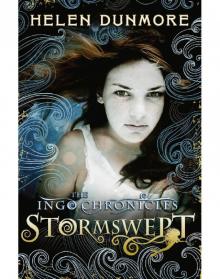 The Ingo Chronicles: Stormswept
The Ingo Chronicles: Stormswept The Deep
The Deep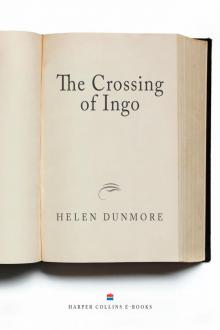 The Crossing of Ingo
The Crossing of Ingo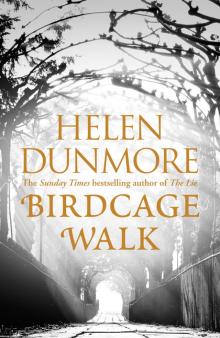 Birdcage Walk
Birdcage Walk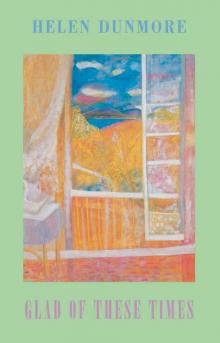 Glad of These Times
Glad of These Times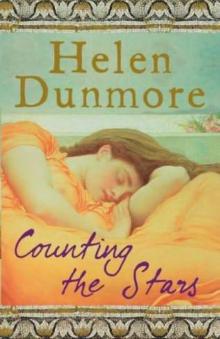 Counting the Stars
Counting the Stars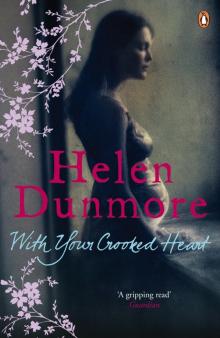 With Your Crooked Heart
With Your Crooked Heart Burning Bright
Burning Bright House of Orphans
House of Orphans Mourning Ruby
Mourning Ruby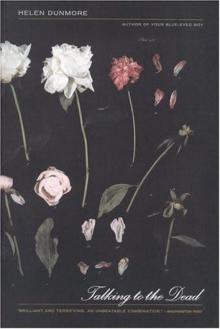 Talking to the Dead
Talking to the Dead Exposure
Exposure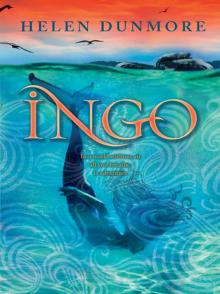 Ingo
Ingo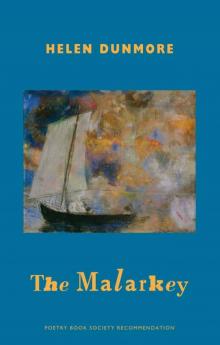 The Malarkey
The Malarkey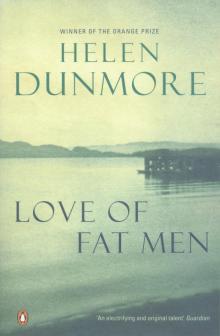 Love of Fat Men
Love of Fat Men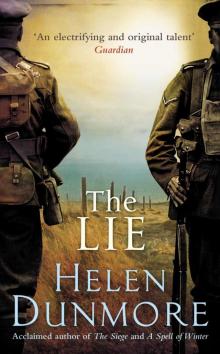 The Lie
The Lie The Siege
The Siege Inside the Wave
Inside the Wave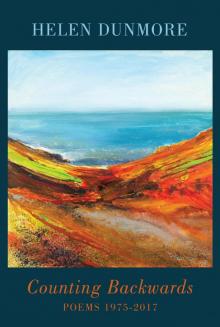 Counting Backwards
Counting Backwards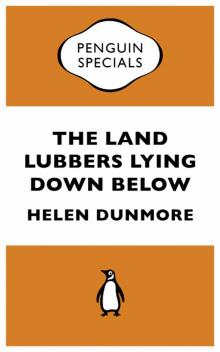 The Land Lubbers Lying Down Below (Penguin Specials)
The Land Lubbers Lying Down Below (Penguin Specials)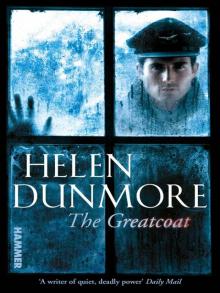 The Greatcoat
The Greatcoat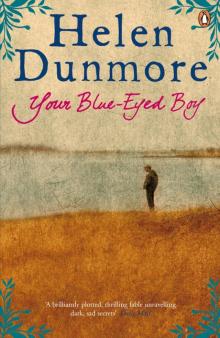 Your Blue Eyed Boy
Your Blue Eyed Boy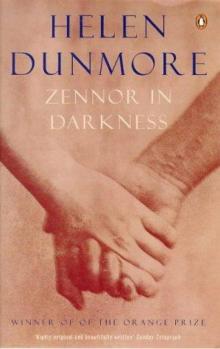 Zennor in Darkness
Zennor in Darkness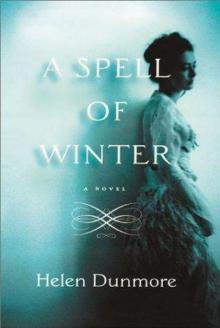 Spell of Winter
Spell of Winter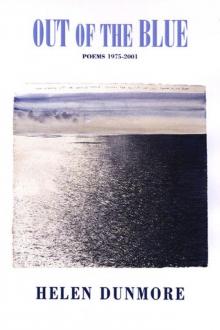 Out of the Blue: Poems 1975-2001
Out of the Blue: Poems 1975-2001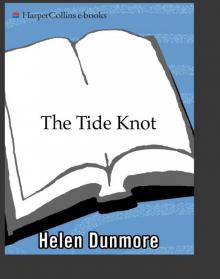 Tide Knot
Tide Knot The Betrayal
The Betrayal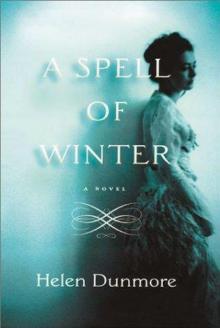 A Spell of Winter
A Spell of Winter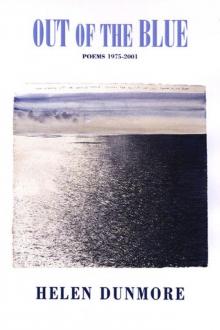 Out of the Blue
Out of the Blue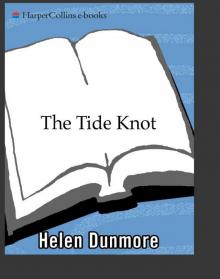 The Tide Knot
The Tide Knot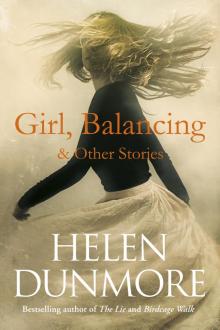 Girl, Balancing & Other Stories
Girl, Balancing & Other Stories Betrayal
Betrayal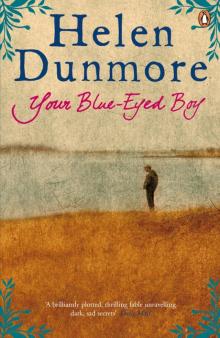 Your Blue-Eyed Boy
Your Blue-Eyed Boy